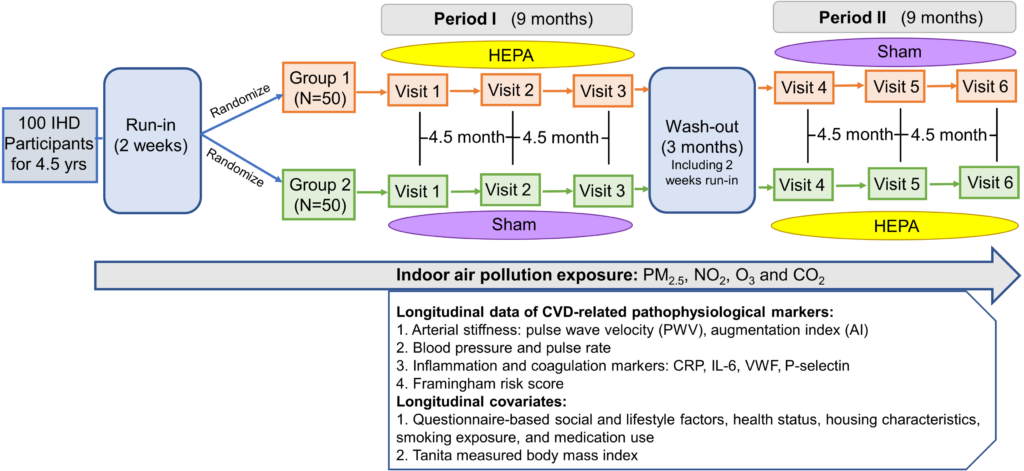SAPIA Study
Slowing Atherothrombosis Progression through Indoor Air Filtration
Aim 1: To assess the effect of a 9-month residential HEPA intervention on atherothrombosis progression in 100 participants. Longitudinal trajectories of pathophysiologic biomarkers including both levels and slopes of change in primary outcomes of PWV, AI, blood pressure, and Framingham risk score10,38, as well as secondary outcomes of high-sensitivity C-reactive protein (CRP), IL-6, VWF and P-selectin, and targeted CVD-related proteomic markers.
Aim 2: To examine the association between reduction in indoor PM2.5 exposure brought by the intervention and the changes in atherothrombosis progression indicators adjusting for ambient PM2.5 exposure.
Aim 3: To examine atherothrombosis responses (both levels and slopes of change) to the HEPA intervention within four subgroups of participants: 1) non-Hispanic, 2) Hispanic, 3) female, and 4) male.

